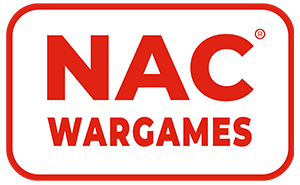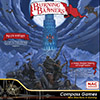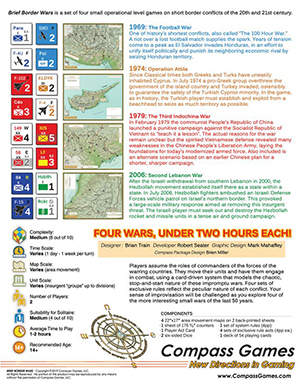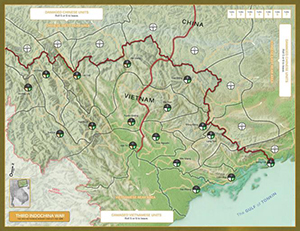FICHA DEL JUEGO
Precio: 
75,9 € - 15% = 64,55 €
75,9 € - 15% = 64,55 €
 Comprando este juego podrás ganar OcaPoints.
Comprando este juego podrás ganar OcaPoints. Edici�n: 



En la Tienda MasQueOca existen varios estados en los que puede estar un juego:
| En stock: el juego est� actualmente en nuestros almacenes y disponible para su env�o. (*) | Últimas unidades: tenemos en stock unas pocas unidades del juego bien por tratarse de una oferta especial en precio o porque el editor ya ha agotado las unidades de las que dispon�a y de momento no tiene previsto hacer una reimpresi�n. (**) |
|---|---|
| Precompra: el juego tiene una fecha aproximada de recepci�n por nuestra parte indicada en la ficha del juego y se proceder� al env�o del pedido en cuanto lo recibamos.��Atenci�n, las precompras no son reembolsables!
P500:�el juego no ha sido todav�a editado, pero se puede reservar sin compromiso para poder tenerlo asegurado cuando se edite. No es posible adquirirlo todav�a pero s� reservarlo. Cuando el juego alcance el n�mero de reservas necesarias o por decisi�n editorial pasar� al estado Precompra. |
Disponible Bajo Demanda: el juego no est� en este momento en nuestros almacenes, pero en principio estamos esperando su reposici�n por parte del proveedor. El tiempo de reposici�n aproximado para un juego nacional es de 1 semana y para un juego de importaci�n suele ser de 3/4 semanas, pudiera ser que recibamos la reposici�n antes o que en el caso de la importaci�n se demore por causas ajenas a nuestra voluntad. (***) �Atenci�n, las compras bajo demanda de juegos de importaci�n no son reembolsables! Pero si un juego no estuviera disponible en el editor, en el momento en que tuviésemos constancia te avisaríamos para que pueda solicitar su cambio o anulación. |
| Pendiente de Primera Edici�n: el juego no ha sido todav�a editado, pero se puede reservar sin compromiso para poder tenerlo asegurado cuando se edite. No es posible adquirirlo todav�a pero s� reservarlo. Cuando tengamos una fecha aproximada de recepci�n el juego pasar� al estado Precompra. | Agotado / Pendiente de Reedici�n: el juego se encuentra agotado por el fabricante y est� preparando una reedici�n. El juego se puede reservar sin compromiso para poder recibir la informaci�n del mismo en el momento que se reedite. No es posible adquirirlo todav�a pero s� reservarlo. Cuando tengamos una fecha de recepci�n el juego pasar� a Precompra. |
| Oportunidades: el juego est� en stock en unidades limitadas. Las Oportunidades son juegos que o bien han sufrido alg�n desperfecto en la caja o bien han sido abiertos por alguna raz�n (comprobaciones de control de calidad, etc), pero que su contenido est� perfecto. Es decir, son juegos que contienen todo lo necesario para poder jugarlo. No se remitir�n fotos espec�ficas del estado de las cajas, a todos los efectos se debe considerar como si se comprase el juego sin caja y sin inserto, aunque la gran mayor�a de las veces son desperfectos sin importancia. Estos juegos, dada la naturaleza de los mismos, no admiten cambios ni devoluciones. | Chollos: �el juego est� en stock en unidades limitadas. Los chollos son juegos nuevos a estrenar que ofrecemos a precios especiales. La oferta est� limitada en el tiempo y a las unidades que se pongan en oferta, una vez se retiren de la secci�n de Chollos su precio volver� a ser el est�ndar. Estos juegos, dada la naturaleza de los mismos, no admiten cambios ni devoluciones. |
| Descatalogado: el juego ha sido descatalogado por el fabricante por lo que en principio no se espera ninguna reimpresi�n. No obstante, en contadas ocasiones, un fabricante decide volver a imprimir un juego. No es posible adquirir el juego, pero s� reservarlo. Si tenemos constancia de una reimpresi�n y una fecha aproximada de recepci�n, pasar� a Precompra. | |
(**) Salvo que en el mismo momento de realizar la compra se realice en paralelo otra compra que agote las unidades, dada esta situaci�n el juego pasar� a disponible bajo demanda a precio normal o a descatalogado y se lo comunicar�amos por correo electr�nico.
(***) Salvo que al solicitar la reposici�n al editor nos comunique que el juego est� descatalogado o pendiente de reimpresi�n. Lo que se comunicar� por correo electr�nico en cuanto tengamos conocimiento.






















